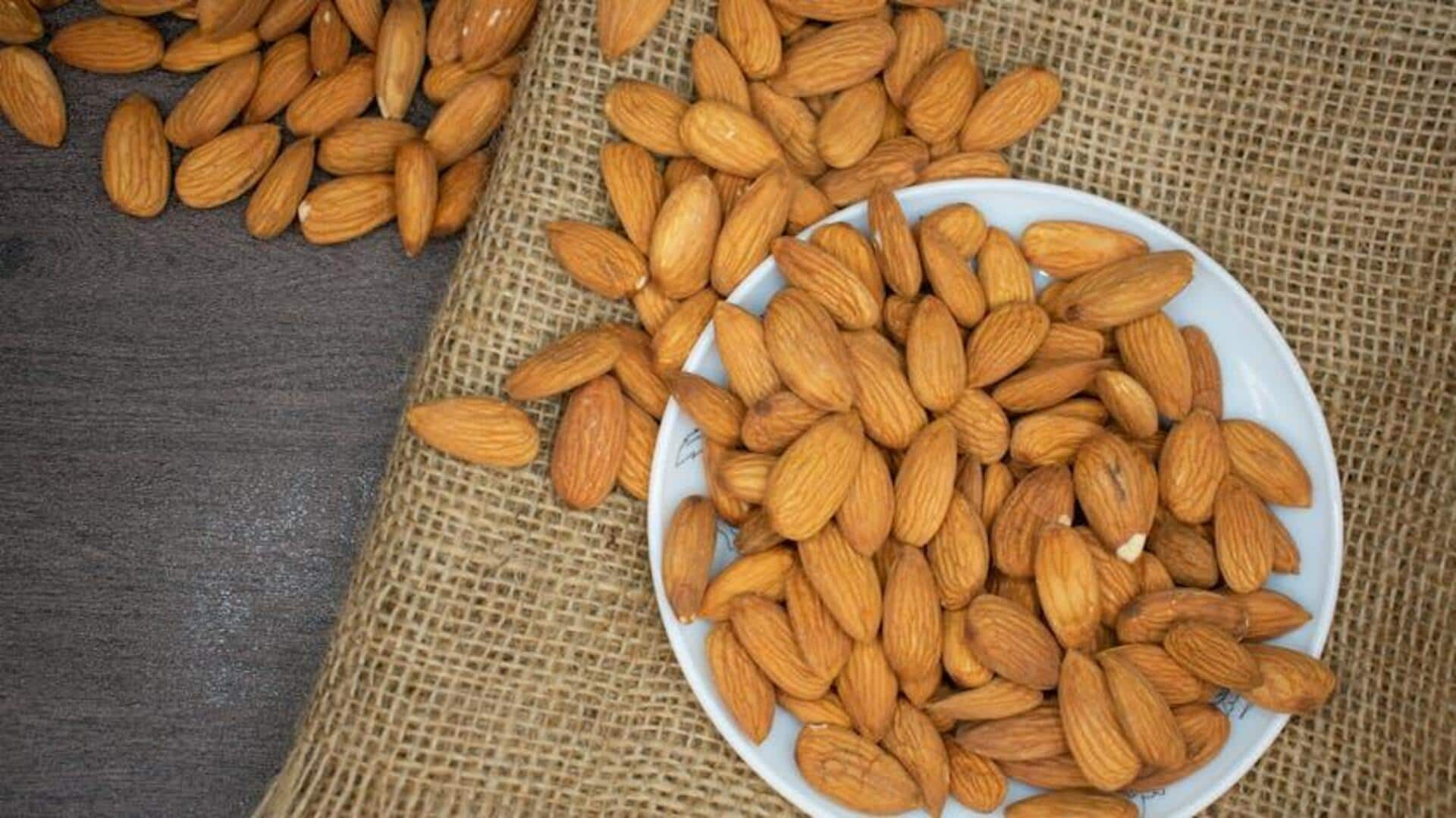
Sesame v/s almonds: Which is better for your bone health?
What's the story
Calcium is important for strong bones and overall skeletal health. Among different sources, sesame seeds and almonds are common choices because of their nutrient profile. Both provide different benefits, but which one is better when it comes to calcium? We explore calcium content in sesame seeds and almonds, and their effect on bone health.
Sesame seeds
Calcium content in sesame seeds
Sesame seeds are famous for their high calcium content. A 100-gram serving of sesame seeds provides around 975 milligrams of calcium. This makes them a power-packed source of this vital mineral, contributing greatly to the daily calcium intake. Adding sesame seeds into meals can be a great way of increasing calcium levels naturally.
Almonds
Almonds as a calcium source
Almonds also offer a decent amount of calcium, albeit lesser than sesame seeds. 100 grams of almonds contains roughly 264 milligrams of calcium. Though not as high as sesame seeds, almonds still add positively to daily intake of calcium when consumed regularly as part of a balanced diet.
Absorption factors
Nutrient absorption factors
The absorption rate of calcium from food sources can vary depending on a number of factors, like the presence of oxalates or phytates which may inhibit absorption. Both sesame seeds and almonds contain compounds that could affect the absorption of their nutrients by the body. However, it's important to consider these factors when evaluating the effectiveness of each source for bone health.
Nutritional benefits
Additional nutritional benefits
Apart from calcium, both sesame seeds and almonds provide various other nutritional benefits that contribute to overall health. Sesame seeds are a good source of magnesium and phosphorus, while almonds provide vitamin E and healthy fats. These nutrients also play a supportive role in maintaining bone density and promoting general wellness, in addition to sufficient calcium intake.